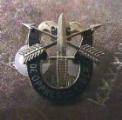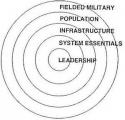Summary
• There are reasons for skepticism about government-insurgent talks, especially as both sides are known for abusive, unjust and discriminatory policies. However, given the constraints of counterinsurgency, obstacles to an anticipated security transition, and the threat of worsening conflict, the potential for negotiations should be explored.
• Field research indicates that the coalition’s military surge is intensifying the conflict, and compounding enmity and mistrust between the parties. It is therefore reducing the prospects of negotiations, which require confidence-building measures that should be incremental, structured and reciprocal.
• Strategies should be developed to deal with powerful spoilers, on all sides, that may try to disrupt the process. The form of pre-talks, and the effectiveness of mediators and “track two” interlocutors, will be critical.
• Pakistan provides assistance to, and has significant influence over, the Taliban. Talks require Pakistan’s support, but giving its officials excessive influence over the process could trigger opposition within Afghanistan and countermeasures from regional states. The perceived threat from India is driving Pakistan’s geostrategic policies, thus concerted efforts are required to improve Pakistan-India relations.
• Negotiations could lead to a power-sharing agreement, but implementation would be highly challenging, especially due to multifarious factional and other power struggles. An agreement could also involve constitutional or legislative changes that curtail fundamental civil and political rights, especially those of women and girls.
• Genuine reconciliation efforts are required to build better relations between hostile groups. For legitimacy and viability, any settlement must be both inclusive and just: it should therefore seek to reflect the aspirations of all elements of Afghanistan’s diverse society. It should also seek to address underlying causes of the conflict, especially the abuse of power.











 "A Sherman can give you a very nice... edge."- Oddball,
"A Sherman can give you a very nice... edge."- Oddball, 






Bookmarks